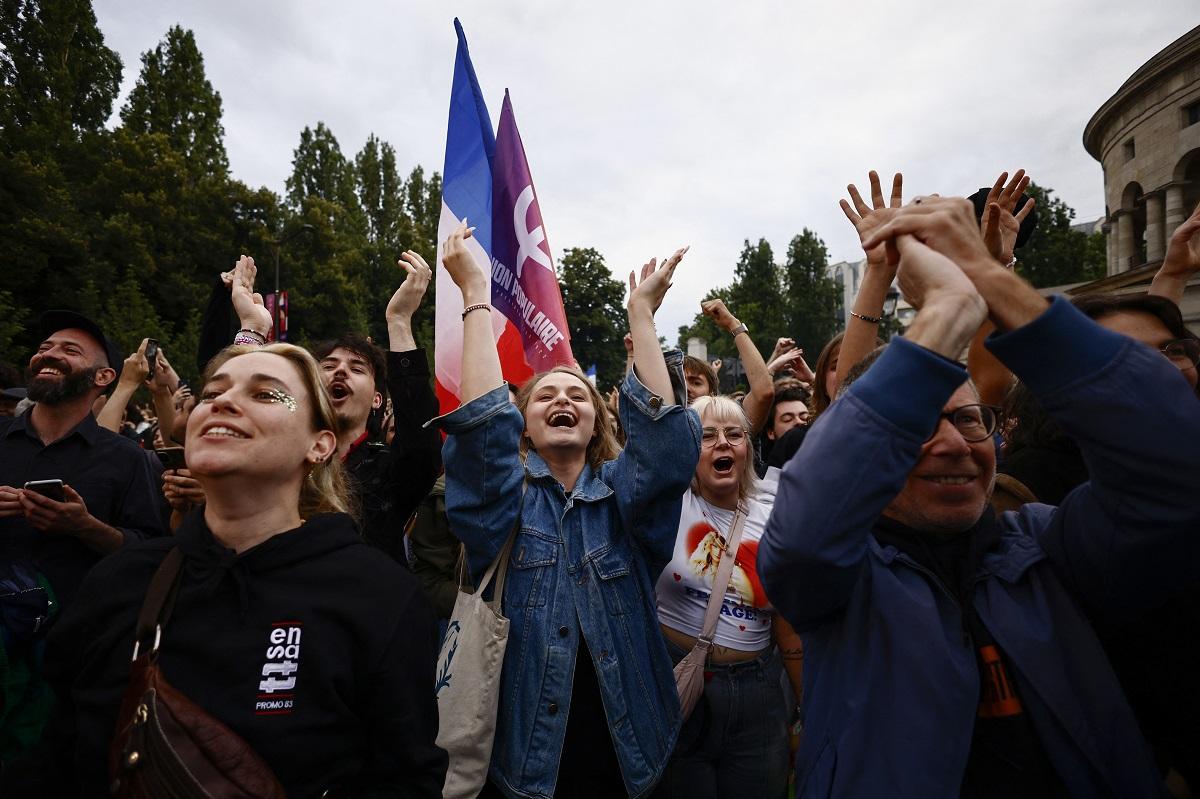Leftist alliance leads French election, no absolute majority, initial estimates show

PARIS — France was on course for a hung parliament in Sunday's election, with a leftist alliance unexpectedly taking the top spot ahead of the far right, in a major upset that was set to bar Marine Le Pen's National Rally from running the government.
The outcome, if confirmed, will leave parliament divided in three big groups with hugely different platforms and no tradition at all of working together.
That could potentially herald a period of instability, unless the left manages to strike a deal with other parties to work together.
The leftist alliance was forecast to win between 172 and 215 seats out of 577, pollsters' projections based on early results from a sample of polling stations showed. These projections are usually reliable.
The result would in any case be humiliating for French President Emmanuel Macron, whose centrist alliance, which he founded to underpin his first presidential run in 2017, was projected to be narrowly second and win 150-180 seats.
But it will also be a major disappointment for Marine Le Pen's nationalist, euroskeptic National Rally(RN).
The RN, which had for weeks been projected to win the election, was seen getting115 to 155 seats.
The first official results were expected later on Sunday, with the results from most, if not all, constituencies likely to be in by the end of the day or the early hours of Monday.
Voters have punished Macron and his ruling alliance for a cost of living crisis and failing public services, as well as over immigration and security.
Le Pen and her party have successfully tapped into those grievances, spreading their appeal way beyond their traditional strongholds along the Mediterranean coast and in the country's northern rust belt.
But the leftwing alliance managed to edge them out of the first spot.
That was in part thanks to some limited cooperation by Macron's centrist Together alliance and the left, designed to block the far right's ascendancy to power. Le Pen's rivals pulled more than two hundred candidates out of three-way races in the second round in a bid to create a unified anti-RN vote.
The constitution says there can be no new parliamentary election for another year, so an immediate repeat vote is not an option. — Reuters




